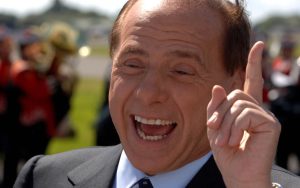Entrepreneurship has always sowed the seeds of a propulsive economy, capable of conditioning the history of our country to the point of considering certain entrepreneurial figures as an inescapable symbol of Italian evolution.
For this reason, InItaly has chosen seven entrepreneurs who have conditioned, or even changed, Italian history. We would like to point out that this ‘ranking’ is only a broad assessment of the work of the entire Italian entrepreneurial sector; therefore, from the outset, we are aware that there are many other names that have had equal importance and celebrity to the aforementioned chosen ones.
The seven Italian entrepreneurs
7)Giorgio Armani
When one speaks of ‘Made in Italy’ in the world, one cannot fail to refer to the figure of one of the greatest designers in the history of fashion, not only Italian but also world-wide: Giorgio Armani.
In fact, the designer from Piacenza first took his steps as a simple employee of Nino Cerruti’s ‘Hitman’ brand, to then develop a totally independent brand, ‘Armani’, representing a highly personal reinterpretation of the entire history of both men’s and women’s clothing.
The Armani ‘blue’ or the unique, classic and elegant fit ensured that the designer crossed national and continental borders, setting up boutiques and sales centres all over the world.
It is the ability to reinvent himself that is Giorgio Armani’s authentic signature: from a line of men’s and women’s garments, to a line of shoes, perfumes, belts; all spiced up with suit designs for film sets, super stars and football teams (first England, then the Italian national team that played in Euro 2020; then the Armani Milano basketball team). Estimated assets: 7.8 billion euros.
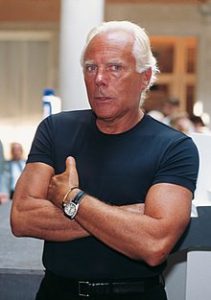
6)Chiara Ferragni
Although this choice may not be universally favoured, it is indisputable that Chiara Ferragni has marked, for better or worse (depending on the different points of view), a turning point in Italian history and, above all, in its sociological dimension.
In fact, Ferragni is currently considered not only as a great entrepreneur – being, among other things, also on the board of Tod’s since 2021 – but also as one of the most important influencers in the world, so much so that she has caught the attention even of the international magazine ‘Forbes’, which has placed her among the best under-30 entrepreneurs of recent decades.
Her entrepreneurial approach is objectively innovative because it marks the debunking, with all its trappings, of a taboo proper to the entrepreneurial mechanism: the incompatibility between family life and work life. Ferragni’s family, in fact, has become a principle of reflection, investigation and – allow me – even consecration of the absence of barriers to individual intimacy. Added to this, of course, are the pharaonic earnings generated by social media, the raw material of success for Ferragni.
Indeed, since its advent, it can be said that the aestheticism of vision (i.e. value judgement following transmission through mass media) has become the new gospel of our country.
Case in point? Ferragni convincing Amadeus to open an independent social channel during the last Sanremo. Chiara Ferragni is the inexorability of a technologically ‘socialised’ world.

5)Enzo Ferrari
The name of Enzo Ferrari is certainly shrouded in legend and myth. Probably, of all Italian entrepreneurs, ‘Il Cavaliere’ is the one who has most spread Italian competitiveness and entrepreneurial ability around the world.
From Modena, and then Maranello, his dream has ploughed through the history of dozens of sportsmen, of enthusiasts and also of millions of Italians for whom the noun ‘Ferrari’ means Italianism and a sense of belonging.
First a racing driver, then also the editor of the ‘Corriere dello Sport’, he decided after the Second World War to found an independent racing, and then luxury, car manufacturer.
From that moment on, Ferrari entered everyone’s homes and hearts. The Ferrari-Montenzemolo couple became one of the most important partnerships in sport and business. A partnership that culminated, of course, with the engagement of Micheal Schumacher in the team; an engagement that would mean legend.
Ferrari has become, in fact, the epitome of every personal aspiration and a clear demonstration that every dream, indulged, can become reality.
But he was also one of the emblems of the post-World War II rebirth: the symbol of a propulsive and fast Italy, capable of setting itself ever more ambitious goals.
Nobody in Italy can claim not to know the fiery red of Enzo Ferrari’s creature.
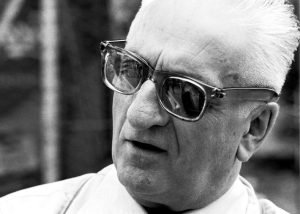
4)Enrico Mattei
Although not the founder of his own company, Enrico Mattei represents one of the most charismatic and impressive figures in Italian history. His miracle at ENI is, to this day, the most controversial experience in Italian public entrepreneurial history.
Initially a partisan and elected to Parliament in the Christian Democratic Party, he was appointed, in 1957, as liquidator of Azienda Agip (the Italian public company responsible for oil extraction on the Peninsula). From this point, the Mattei epic would begin.
In fact, the great executive not only refused to decree the end of a state company, but identified new fields in northern Italy and started a network of energy agreements with Middle Eastern countries and, apparently, even with the Soviet Union itself, despite Italy being in the NATO pact.
Mattei’s influence was such that, within a few years, ENI managed to position itself in competition with the terrible ‘Seven Sisters’ (the seven largest US oil companies) and to weave a network of party and political alliances with the intent, also as a great statesman, to finally destroy dependence on the United States. His death in a suspicious accident in 1962 is still a legend.
Pasolini, in 1974, began a last long novel testament aimed at emancipating Italian culture from its perennial capitalist embalming. Oil will be Mattei’s death sentence, ‘Petrolio’ that of Pier Paolo Pasolini.
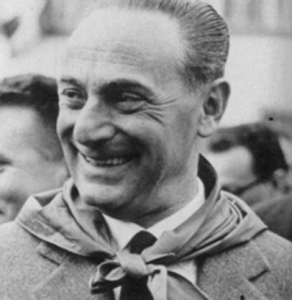
3)Adriano Olivetti
Adriano Olivetti represents the world’s greatest entrepreneurial theorist and one of the most talented entrepreneurs in Italian history. His ‘Olivetti’ was not only the sign of the futuristic capabilities of ‘Made in Italy’, but also the forge and test-bed of an industrial model that could go beyond the capitalist curtain.
If in Europe and the world, capitalism risked faltering in its principles and primary components, it was precisely thanks to the entrepreneur from Imperia, who was able, with true prophecy, to assume the most difficult position, at that time, to hold: in the middle, in the middle between the capitalist and the socialist productive bloc.
Olivetti has always stood for quality and innovation: there the first typewriters, there the first computer calculators, there the first ancestors of modern computers. Above all, however, it represented Adriano Olivetti’s lofty and sublime idea of productive existentialism: a communist capitalism. At the centre of the company was the worker.
The realisation that higher wages, the presence of the family near the workplace, an excellent education for the children and a more than decent home in which to live could increase industrial productivity, drove the great entrepreneur to write history and to found communities that were taken as models throughout the world.
A new way of doing industry is personified in Olivetti!
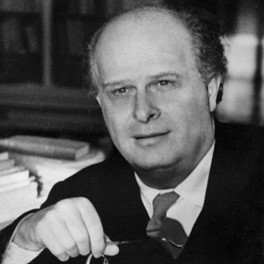
2)Gianni Agnelli
Gianni Agnelli is, without a shadow of a doubt, the emblem of Italian-ness: determination, extremely ambitious mentality, capitalist rigour, great flair and vivid leadership. It is no coincidence that the patron of the famous ‘Agnelli’ family also earned himself a front page in the ‘New York Times’ as man of the year.
His is a legendary rise, which has decreed the unrivalled triumph of the Fiat car brand, laying the foundations of an economic empire with few equals in the history of the world. The ‘lawyer’, so well known to many, succeeded in disseminating – in the full literary meaning of the term – throughout the world the sense of economic and social victory, building an industry so powerful that for many years it was the company with the highest number of taxpayers, and therefore employees, in Italy.
Gianni Agnelli has therefore, for better or worse, covered the consecration of capitalism, both practical and ideological, delivering to the country the strength of fashion (hence the willingness to choose car models according to stereotyped tastes), the resourcefulness of the entrepreneurial career and the ability to observe in the entrepreneur the archetype of the successful individual in the collective imagination.
It is no coincidence that this mentality has spread in politics as well as in football. Juventus, his favourite creature, has embodied, through its football palmares, the winning intuitiveness and productive will for results that has always distinguished the Turinese entrepreneur; it is no coincidence that, under his leadership, it has become the most titled club in Italy and one of the most titled in the world.
Above all, Gianni Agnelli, defined the modus vivendi of the Italian elite, leaving a cast, directly or indirectly, impossible to forget.
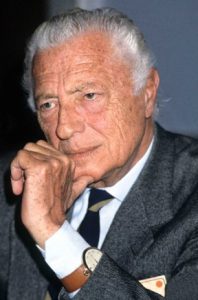
1)Silvio Berlusconi
This may be a controversial choice, but no businessman has had such a powerful impact on Italian history as Silvio Berlusconi. Indeed, the ‘Cavaliere’ – as he is known to all – has represented the apotheosis of every average citizen’s desire, as well as embodying the highest aspiration of every entrepreneur: to acquire the centre of power. From a strictly entrepreneurial point of view, it has been a mighty ride.
First the builder of Milano 2, then the creator of Tele Lombardia; then the ambitious Mediaset project, capable of overthrowing RAI’s monopoly. But it was in 1994 that his destiny became inextricably linked with Italian history: he took the field with a new and revolutionary concept of political party, proclaiming with his political style the end of the First Republic and of the party of ideology. From there, presidential appointments, national and international political relevance, to the absolute domination of politics in the last 30 years.
Is this enough to explain the phenomenon of Silvio Berlusconi? In fact, these considerations are essentially superficial. The communications tycoon has indeed managed to re-educate Italy. The extraordinary ability to demolish an individual cultural-social construction in favour of a mass form of education that can be predicted for electoral purposes; the identification of deep-rooted economic and commercial needs through the great advertising enterprise; the construction of a mass Eden that favours media culture with easy electoral appeal: this is the Berlusconi result.
Silvio Berlusconi can therefore be said to have left such a strong mark that his presence is an essential break in the understanding of contemporary Italy.
